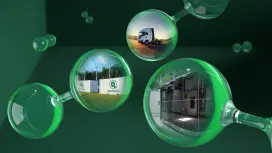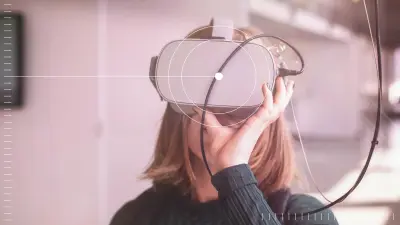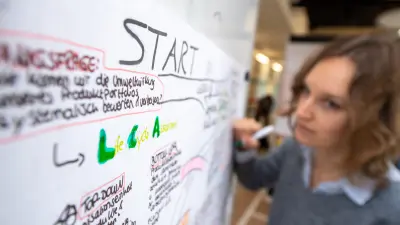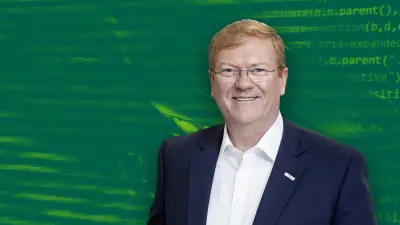Technology is the key
For the Bosch chairman Dr. Stefan Hartung, technology is the key to combating climate change
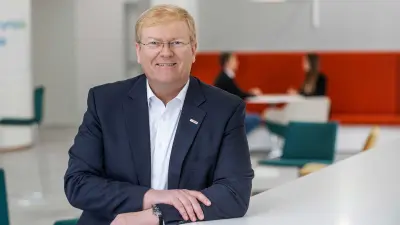
Since January, you’ve been in charge of one of Germany’s biggest companies. What does responsibility mean for you personally?
For me, the first thing responsibility involves is the obligation to answer for my actions. But beyond that, in my capacity as chairman of the Bosch board of management, it means ensuring that everything necessary is done to help us achieve our objectives. Our company founder Robert Bosch left us with clear guidance as to what those objectives are: safeguarding our independence, ensuring the company’s strong and meaningful development, and using Bosch technology to improve people’s lives.
With a doctorate in engineering, you perhaps see a lot of things differently from a lawyer or an economist. Is such a technological perspective useful when leading a company like Bosch?
More than anything else, the reason I became an engineer was because I’m fascinated by technology and the people who create it, and not because I decided I wanted to run a company one day. But here I am, running a company. And that gives me the chance to apply my enthusiasm for technology where it matters, in a high-tech company. In this way, I can pinpoint and evaluate technological trends and potential, and decide together with my board of management team whether the company will enter a new business or not. And in such cases, it certainly helps to have trained as an engineer.
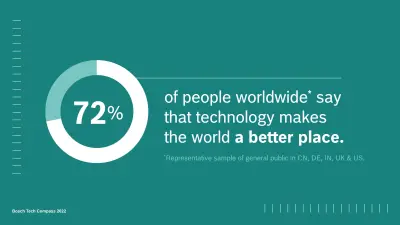
How can technology help Germany achieve the Paris climate targets?
It’s only with the help of innovative technology that we will achieve the Paris climate targets. And I’m not the only person to see things that way. Three out of four of the people we polled worldwide in our Tech Compass survey said that technology is the key to combating climate change. What’s more, I’m absolutely sure that we have by no means invented all the technological solutions we will need as we move toward net zero. A lot more needs to come — and as an optimist, I’m sure a lot more will come.
Bosch is well known for its social commitment. Is such commitment a typical trait of family-run companies?
Well, there are certainly many examples in the German economy — past and present — of responsibly minded, family-run companies. For Robert Bosch, social justice and social cohesion were important concerns. As a company, and through the Robert Bosch Stiftung, we continue this commitment in his spirit. But I’ve observed how social responsibility has become a fixture of many of today’s companies — regardless of their legal structure and how they are organized.
What is Bosch doing in-house to tackle the challenges of our age?
The greatest challenge of our age is climate change. It leaves us no room for hesitancy or procrastination. Bosch is playing a leading role here. Since February 2020, it has shown that a multinational enterprise’s manufacturing operations can be carbon neutral — worldwide. We are passing on our experience to other companies that want to follow in our footsteps. At the same time, our products are also helping enable a more sustainable way of life.
Your corporate claim is “Invented for life,” and your products can be found in many other products made by other companies. Does that mean a special responsibility? After all, when it comes to sustainability, the amount of leverage you can apply is enormous.
Sustainability is the responsibility of every single person and institution. And only if we see it as a task for the whole of society, worldwide, will we have any kind of chance. We are aware of the responsibility we bear at Bosch – also as a pioneer and role model for others. We are honoring our commitment here.
What new challenges will associates have to face, and can Bosch help them?
Above all, they will have to remain open for change. The world we live in is complex and in flux. Again and again, this forces us as a company to adapt as new areas of business come into being, old ones change radically, and others fall by the wayside completely. So for our associates, it’s crucially important that they be willing to accept things that are new and unknown, take them on board, and actively keep learning. Some years ago, we declared Bosch a learning organization, and in this spirit we offer a variety of programs and policies for lifelong learning. And we put our money where our mouth is: over the past five years, we have invested a billion euros in reskilling and further training our workforce.
The automotive industry is one of the most important sectors for you. What can Bosch do there to make future mobility more sustainable?
One of things Bosch can do is to remain truly technology neutral. We have the right solution for every application. In our powertrain division, for example, this means we aren’t just investing heavily in electromobility, we’re also refining and honing our components for classic combustion engines. These will still be needed for many decades to come, and to mitigate global warming and protect the environment they will repeatedly have to be brought up to the state of the art.
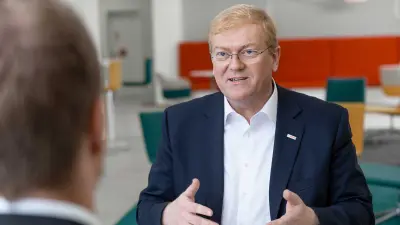
Given the primacy of climate neutrality, do you think the electrical powertrain is the right solution for the future of the automotive industry?
Well, yes and no. It always depends on circumstances. Here in Europe, if we manage to speed up the build-out of infrastructure, with charge spots and hydrogen filling stations, and to make green electricity and hydrogen available, then the powertrain of choice here will obviously be electrical, with batteries and fuel cells. In Africa, South America, and parts of Asia, the situation is a quite different one, and will remain so for years. In many cases, these regions simply do not have the infrastructure needed for electromobility. So we will continue to need combustion engines for these regions — highly efficient engines that run on carbon-neutral fuels. Moreover, such fuels can also be used in the existing fleet, and make air and sea transport climate neutral.
How can the energy needed for so many electric cars be made available in a climate-neutral way?
It’s not just vehicles that need energy, but industry and private households as well. All of them have to be supplied with climate-neutral energy. In the future, that will only work by importing energy. Instead of fossil fuels like oil and gas, we will import green hydrogen. The good thing is that there are regions in the world whose long hours of sunshine give them ideal conditions for producing green hydrogen. And the gas grids we already have are ideal for distributing it. That said, we now have to do a lot to set up supply chains.
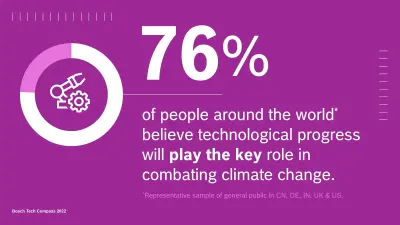
What technical innovations — possibly pioneering ones — is Bosch working on at the moment?
Whether or not an innovation is pioneering can generally only be judged properly in retrospect. But whatever the case, the list of Bosch innovations is long. There’s our electronic anti-skid system ESP which has saved some 15,000 lives so far, the Bosch process for manufacturing microelectromechanical sensors, and the rapid PCR test for coronavirus that we developed in just six weeks at the start of the pandemic. And those are just a few examples. Every year, we spend several billion euros on research and development. And if I look at the progress we’re making in software and artificial intelligence, then I can promise you that the list is about to get a lot longer.
This interview was first published in German in Magazin des F.A.Z.-Instituts.
